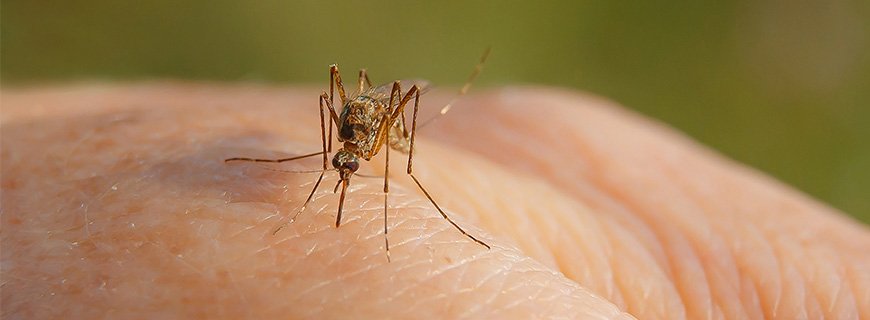First probable human case of West Nile Virus identified in the KFL&A region this year

KFL&A Public Health is reminding residents to protect themselves from mosquito bites after the first probable case of West Nile Virus infection has been identified in a local resident. A crow has also tested positive for West Nile Virus in the local area.
West Nile Virus is an infection spread to humans usually through the bite of an infected mosquito. The virus is typically spread by mosquitoes that feed on an infected bird.
Four out of five of people with West Nile Virus will experience no symptoms, while others may develop mild flu-like illness with fever, headache and body aches two to 15 days after being bitten by an infected mosquito. Symptoms last several days. Less than one percent of infected persons develop more severe disease.
Tips for protecting yourself and your family from West Nile Virus include:
- Wearing light-coloured clothing with long-sleeves, pants and socks in areas where mosquitoes are present, especially at dusk and dawn when they are most active.
- Using insect repellent with DEET or icaridin (always follow directions for use, especially for children).
- Avoiding the outdoors at dawn and dusk.
- Removing standing water outside your home.
- Fixing tears in window and door screens.
- Covering rain barrels with screen mesh.
For more information, visit KFL&A Public Health’s West Nile Virus webpage here: https://www.kflaph.ca/en/health-topics/west-nile-virus.aspx
KFL&A Public Health conducts regular mosquito trapping to test mosquitoes for West Nile Virus. There have been no positive mosquito pools for the virus in 2024 since testing started in June.
The Canadian Wildlife Health Cooperative also monitors wildlife for evidence of West Nile Virus. Residents can report dead birds by visiting their site here: https://www.cwhc-rcsf.ca/report_and_submit.php.
—30—
For more information, contact: Communications@kflaph.ca










